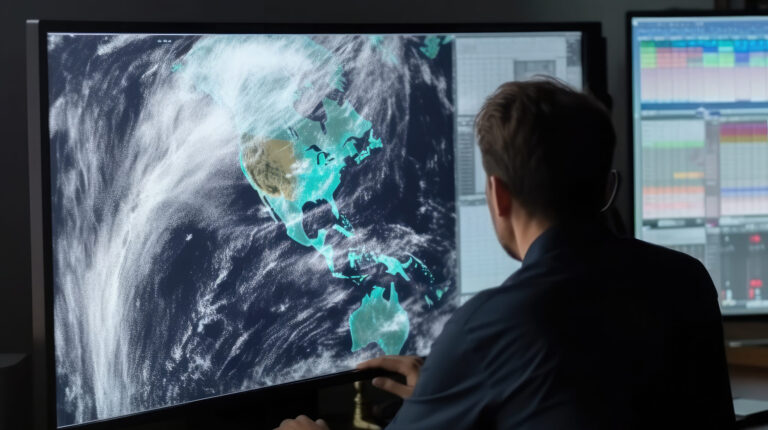NOAA and the White House Office of Science and Technology Policy (OSTP) have hosted a joint workshop on the potential for artificial intelligence (AI) to transform weather prediction.
The two organizations joined representatives from academia and the private sector to discuss new developments, current challenges and potential cross-sector collaboration to best use AI for weather prediction to improve the ability of Americans to protect lives and property as climate change increases the frequency and intensity of extreme weather events.
“Participants from industry, universities and government agencies highlighted the exciting opportunities but also the interesting challenges for AI to vastly improve weather forecasting,” said White House Office of Science and Technology deputy director Jane Lubchenco. “The knowledge, experiences and relationships from the workshop will enrich NOAA’s approaches going forward.”
The workshop covered a wide range of topics, including anticipating the benefits and challenges of AI for weather prediction, building and maintaining trust in AI systems, and exploring scientific unknowns that pose the biggest challenges. Early results using AI and data-driven models show enhanced skill in predicting extreme life-threatening events like hurricanes, winter storms and heat waves – highlighting the opportunity to use these new models as valuable tools to produce forecasts that protect lives and property.
Through the workshop, NOAA strengthened its commitment to working with partners to build the infrastructure for trustworthy weather AI models that support decision making. A critical next step is expanding the reach and accessibility of NOAA data products to better serve AI users across sectors.
“The rapid pace of advancements in AI for numerical weather prediction has made urgent the need for NOAA to assess the state of the science and operational capabilities,” said Assistant Secretary of Commerce for Environmental Observation and Prediction, Michael C Morgan. “This workshop was an important step in scoping how NOAA can responsibly integrate the latest technology into research and operations, and ultimately better serve the nation.”
Virtual and in-person workshop participants included academic representatives from California Institute of Technology, Colorado State University, New York University, University of Albany, University of California at San Diego, University of Colorado, University of Florida, University of Maryland, University of Oklahoma and University of Washington.
The federal agencies represented included the US National Science Foundation, the US Department of Energy and the US Department of Defense. Amazon Web Services, Google, Microsoft, Nvidia and The Weather Company attended from the private sector. The research organizations present included the European Centre for Medium-Range Weather Forecasts and the National Center for Atmospheric Research.
In related news, The University of Reading has released a study that highlights the rapid progress and transformative potential of artificial intelligence (AI) in weather prediction through an analysis of November 2023’s Storm Ciaran. Click here to read the full story.



